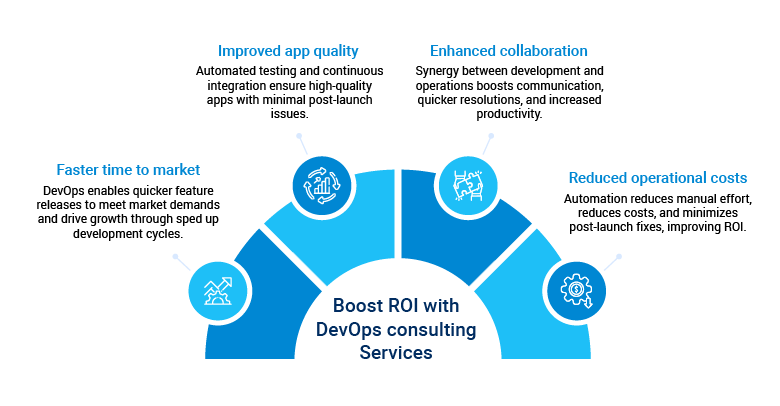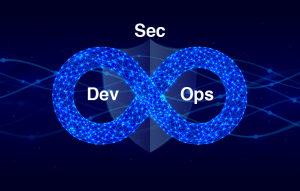We live in a hyper-connected world, where mobile apps have transformed from mere convenience machines to essential tools for businesses and individuals alike. Enterprises now compete on delivering experiences that captivate and engage users like never before. According to Adjoe, apps collectively occupy a significant part of daily life, with social apps at 75 minutes and other categories adding up to nearly 130 minutes of use.
Smart mobile devices have become the new way of accessing web content from a long time and will continue to dominate in the future. Hence, it is important that mobile apps offer fundamental functionalities – a seamless user interface and engaging user experiences. George Colony, CEO of Forrester Research Inc., famously said that this is the “age of the customer”. Hence, enterprises not only need to meet consumer expectations but also exceed them to avoid falling behind their competitors. In this blog, we will explore the drawbacks of traditional app deployment, the benefits of DevOps consulting services, its comparison with Agile, essential tools, and key takeaways for enterprise mobility success.
Drawbacks of existing mobile app deployment practices
Many businesses face challenges when deploying mobile applications. Below are some common drawbacks, highlighted from a business owner’s perspective:
- Delays in deployment: The traditional waterfall method often takes months to gather requirements, develop, and test before deployment, resulting in significant delays.
- Increased costs: Prolonged development cycles and inefficient governance processes can drive up expenses.
- Missed requirements: Development teams may lose track of components or miss requirements due to lack of continuous communication.
- Quality issues: Large, infrequent deployments increase the likelihood of errors, making it difficult to maintain consistent quality.
Why adopting DevOps is the best approach over others
DevOps consulting services offer a powerful way to address the challenges of multiple operating systems, diverse mobile devices, and consumerization by integrating the agile development methodology. This allows for the rapid deployment of essential functionalities, ensuring successful mobile apps. DevOps emphasizes shared responsibility for testing across the team, and automated testing ensures rapid code changes without compromising quality.
Furthermore, DevOps’s continuous integration capabilities enable tracking and testing of every single change in the source code management system, irrespective of the platform.
Benefits of DevOps for mobile application development and deployment
Maximize system uptime for seamless performance
When we maximize system uptime, we not only ensure that mobile apps perform seamlessly, but also offer the users uninterrupted access to services which enhances customer satisfaction.
Automate repetitive processes
The entire development process benefits when we Automate repetitive tasks. We enjoy a certain uniformity along with higher efficiency by circumventing the possibility of human error and enable delivery of consistent quality across mobile app releases.
Identify and resolve problems faster
DevOps helps in faster detection of issues along with their quick resolution. Such efficiency minimizes downtime and ensures that bugs are addressed promptly for improved app performance.
Accelerate time to market
DevOps streamlines development and deployment cycles which accelerates the time to market. This makes faster delivery of new features and updates possible, ensuring businesses stay ahead of the competition.
Deliver high-quality customer experiences
With continuous testing, feedback loops, and rapid iterations, DevOps helps deliver high-quality, user-friendly mobile apps that meet customer expectations and drive engagement.
Transforming ROI with expert mobile DevOps consulting services
Mobile DevOps consulting services offer several key advantages that directly contribute to a positive return on investment (ROI) for businesses:
- Faster time to market: DevOps enables quicker feature releases to meet market demands and drive growth through sped up development cycles.
- Improved app quality: Automated testing and continuous integration ensure high-quality apps with minimal post-launch issues.
- Enhanced collaboration: Synergy between development and operations boosts communication, quciker resolutions, and increased productivity.
- Reduced operational costs: Automation reduces manual effort, reduces costs, and minimizes post-launch fixes, improving ROI.

Agile or DevOps: Which approach fits your needs?
Although DevOps and Agile are often used interchangeably in mobile development, they have distinct differences. Below is a concise comparison:
| Aspect | Agile Methodology | DevOps |
| Focus | Software development | Software development and operations |
| Communication | Frequent scrum meetings | Collaboration through documentation and workflows |
| Testing | Performed during development cycles | Continuous testing integrated throughout |
| Objective | Delivering incremental changes to the product | Continuous delivery and deployment |
Top tools used by trusted DevOps consultants
Trusted professionals use powerful tools to optimize mobile app development, enhance collaboration, and ensure faster, high-quality product delivery. Here are the top tools they rely on:
Jenkins: It is a continuous integration and delivery tool that automates the building, testing, and deployment of mobile apps, helpful in ensuring faster time to market.
Docker: A useful tool to containerize applications that also provides consistency across environments, enabling DevOps teams to impart efficiency in deploying and scaling mobile apps.
Kubernetes: Another tool resourceful in orchestrating containerized applications, Kubernetes automates the deployment, scaling, and management of apps, ensuring high availability.
Git: A version control system that allows DevOps consulting services to track code changes, collaborate efficiently, and maintain version consistency across teams.
Ansible: An insightful IT automation tool that streamlines configuration management and deployment, it enables DevOps teams to automate repetitive tasks and improve overall efficiency.
| DevOps Tool | Aspects Supported |
|---|---|
| Jenkins | Automated builds, continuous integration (CI), continuous delivery (CD), real-time testing systems |
| Docker | Containerization, environment consistency, scalable app deployment |
| Kubernetes | Orchestration of containers, scalability, automated deployments, high availability |
| Git | Version control, code collaboration, change tracking, branch management |
| Ansible | Configuration management, infrastructure automation, task automation, deployment automation |
Key takeaways
Undoubtedly, DevOps has gained significant traction as an advanced mobile application development approach. By leveraging DevOps consulting services, businesses can create robust, user-friendly, and feature-rich mobile apps. With DevOps, organizations can implement changes quickly and refine their apps through rapid updates.
For a successful large-scale mobile app development project, consider hiring experienced DevOps engineers to guide your journey toward enterprise mobility success. At Softweb Solutions, we apply our industry-leading expertise to deliver advanced DevOps solutions, streamlining mobile app development and deployment. Contact us today and take the first step toward faster, high-performing apps.









